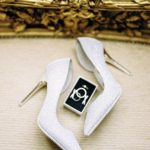Make-up artists need to have a thorough knowledge of the products they use, be up-to-date with the latest styles and colours, and know how to apply the products to achieve the best result for each individual client. Depending on the specific job, the duties of make-up artists include: giving lessons on how to apply make-up; doing make-up for special occasions; applying make-up for TV presenters or actors; and selling cosmetic products. Make-up artists generally work from a salon but sometimes travel to the client. Quite a lot of travel and possible outdoor work can be expected if one is involved in film and television production, or fashion shoots. Business and sales skills are important for make-up artists who are self-employed.
 Jean Beaunoir started work mending carpets. After eight years, a friend said she’d been at the carpet factory for 25 years. “I resigned immediately. For two years I stayed home and did my friends’ hair. When I heard they needed an experienced stylist at the Durban Playhouse, I jumped at the chance, even though I had no real experience, nor a qualification. Fortunately, I got it, and I absorbed everything I could, like a sponge. I learned how to do make-up as I went along by watching and talking to the make-up artists.
Jean Beaunoir started work mending carpets. After eight years, a friend said she’d been at the carpet factory for 25 years. “I resigned immediately. For two years I stayed home and did my friends’ hair. When I heard they needed an experienced stylist at the Durban Playhouse, I jumped at the chance, even though I had no real experience, nor a qualification. Fortunately, I got it, and I absorbed everything I could, like a sponge. I learned how to do make-up as I went along by watching and talking to the make-up artists.
Basics
Make-up artists, hairdressers, stylists or wig makers work in a variety of settings, like theatre and live music shows, film and television sets, and on photographic shoots to make sure that performers’ and models’ hair and make-up is properly prepared.
In South Africa most make-up professionals are freelances. “Your earnings depend on how good you are, and who hires you. I’ve been hired by top people who know my work and pay top dollar, and I’ve earned the minimum on low budget productions. In a recent photo shoot, requiring four different photos, I got R1000 for the day. That’s pretty good.”
 Job description
Job description
The make-up artist is briefed on the character’s requirements, for example, a period piece, or special effects, like a moustache and beard. They research the period, and make sketches and suggestions in advance. “We practise in dress rehearsals, to ensure there’s enough time to accomplish the desired effects. There might be specific challenges, for example, an actor has to wear make-up under a mask to be removed on stage. Or an actor needs a false nose, or a scar. We use a sculpting latex foam to cast facial and body moulds, called prosthetics, and you have to maintain and repair the wigs and prosthetics so that they’re kept in a good state. You also have to understand how different lighting, spot lights or camera, affect the makeup, and you communicate well with the performer that your handiwork won’t let them down on stage.”
Required studies or experience
The Tshwane University of Technology offers a National Diploma in Performing Arts Technology. This course covers a range of make-up related styles and techniques essential for would-be makeup artists.
Personality types
“Apart from oodles of creativity and the patience of a saint, you need to be able to respond to the performers. Opera singers are very highly strung. At the slightest upset they might refuse to go on stage. You must reassure them that everything’s fine. You need self-confidence. Actors take a lot of your energy, to fuel their own performance on stage. If you go wrong in the dressing the room, the whole show could be a flop.”
An average day
At Christmas, My Fair Lady was on. It was hectic. Brides came to my home salon in the morning, then I’d rush to Play House and do two shows. The good thing about being a combine make-up artist is that there will always be brides and matric dances, even when the theatre is cold.
The worst thing about the job
“It’s bad if somebody comes out in a rash. Accidents can happen. Once I scraped an actress with a hairpin nicking her skin as I adjusted her wig. The next day she showed me a terrible red weal. The worst nightmare is if a moustache or a wig falls off on stage. I tell my actors, ‘Don’t wiggle the wig,’ because they pull the hairpins loose…”
The best thing about the job
“There is always a new challenge. Once I had to do full body paint of animals, a zebra, lion and a monkey. There’s no text book to follow. You come up with your own ideas. In the movie Cry the Beloved Country I designed the bullet wound to the actor’s stomach and the head. It’s interesting work that keeps you on your toes.”
At the retirement party of Mr Moses, who hired Jean originally, she confessed to the lie in her interview. “He asked, “Do you ever regret it?” I don’t know if he meant the lie or becoming a make-up artist, but I said, “Never!”
Liesl Jobson





